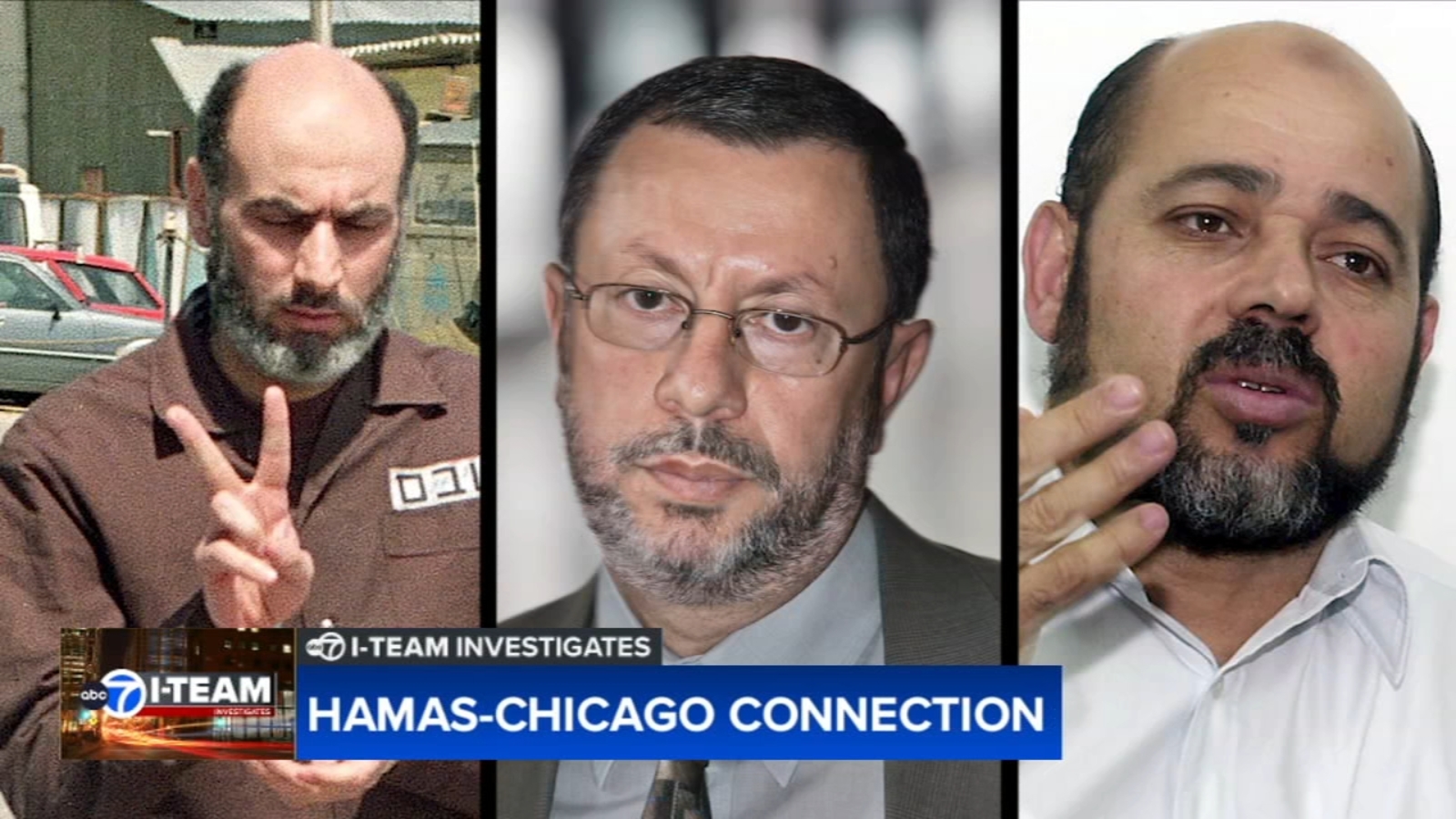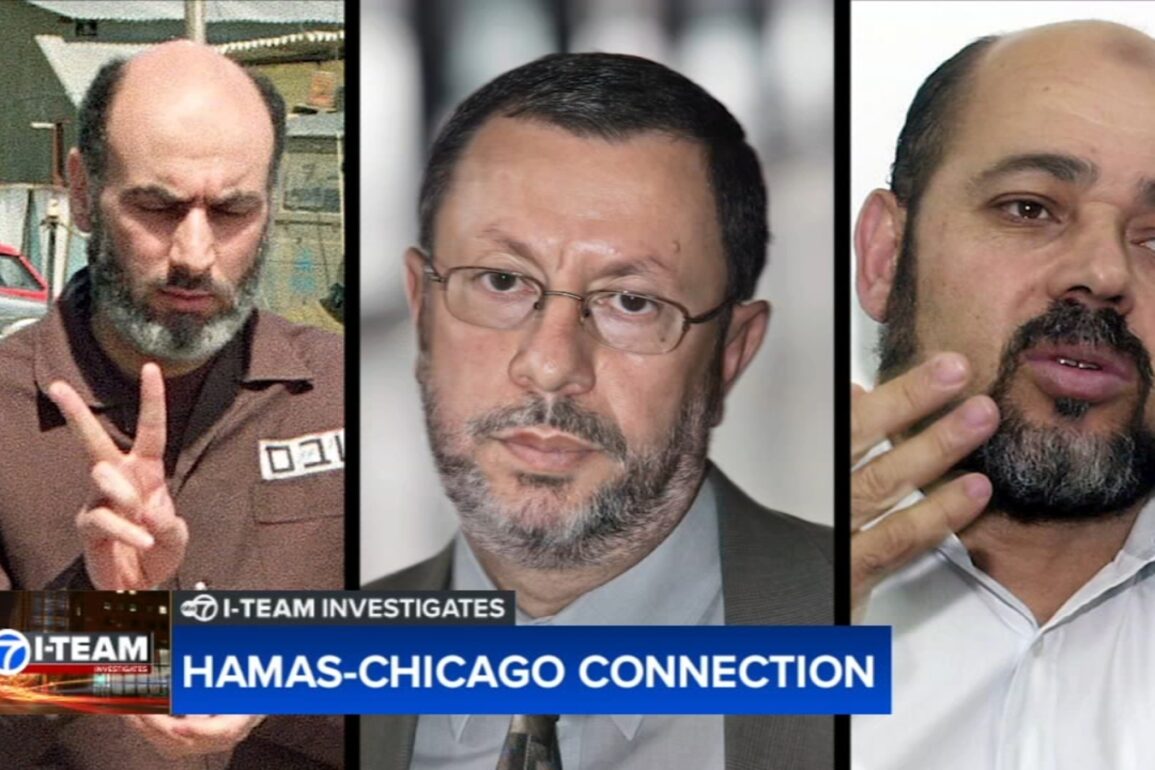
CHICAGO (WLS) — The word Hamas is an acronym, translated as “Islamic Resistance Movement.” The Hamas-Chicago connection first surfaced almost 20 years ago, when a suburban man was accused of funneling money to the then-relatively unknown group.
With Hamas a U.S.-declared terrorist organization and the governing body of Gaza’s 2 million Palestinians for the last 16 years, I-Team sources say they expect a surge in Hamas-linked charges with the onset of what’s happening in Israel.
“In the United States. There were about five separate functions that were set up to serve and support activities in the Middle East. Three of them were based in Chicago, and one individual in particular, actually was recruited to go to the territories. The organization including the military wing, one of the people he talked to is the deputy political leader of the Hamas government today,” said former Assistant U.S. Attorney Joseph Ferguson.
READ MORE: Man facing hate crime charges after chaos at pro-Palestinian protest
Ferguson led the Chicago prosecution in August 2004 when three men were indicted here on federal terrorism racketeering charges: Muhammad Salah, a grocer from southwest suburban Bridgeview, and Abdelhaleem Ashqar, a Palestinian activist in suburban Washington. The third man was named as a fugitive: Mousa Mohammed Abu Marzook, then said to be in Syria.
Since 1988, they were among nearly two dozen people who allegedly funneled millions of dollars to Hamas, which was, for the first time in these Chicago charges, branded as a “criminal enterprise.” Investigators said Hamas had carried out multiple kidnappings and murders overseas and was heavily funded by Chicago area supporters.
“Everybody was in the same boat, and there were certainly arguments that these were not terrorists,” said defense attorney Thomas Durkin.
RELATED: Family of Chicago native last seen during Hamas attack speaks out
Durkin represented Ashqar for part of the Hamas case. Asqar, and co-defendant Salah, were acquitted by a jury in 2007 on the most serious charge of racketeering conspiracy. But both were convicted of obstructing justice. Ashqar received an 11 year prison sentence.
“One person went to jail for 11 and a half years, so I’m not sure that that’s right, you know, a lesser outcome,” said Ferguson.
“One of our main criticisms of the case is that it was dragged out after 9/11 as if it was something to do about terror attacks on 9/11, which it wasn’t,” said Durkin.
MORE COVERAGE: Hamas frees two Israeli women as US advises delaying ground war
With Hamas the centerpiece of a Chicago criminal case in 2004, what about Hamas in Chicago today? Does the group still have a presence in the area?
“It’s easier for us to be more effective the less we say about what we do on investigations. Many times. And this would fall into that category,” said Robert “Wes” Wheeler, Jr., Chicago FBI Special Agent in Charge.
Two decades after Durkin and Ferguson went head-to-head in the landmark Hamas-Chicago terror case, now they are side-by-side at Loyola Law School.
“One of the things that I, we work very hard to bring to our students is an understanding that being on opposite sides doesn’t mean you’re enemies,” said Ferguson.
For 15 years their classes have focused on how terrorism is investigated, prosecuted, defended and sometimes punished. The two of them have unique context, especially with a war involving Hamas being fought in this moment.
“If it results in World War III will be for political purposes completely,” said Durkin. “And I think that’s what’s very dangerous.”
“How we went about things after 9/11, we learned lessons from that,” said Ferguson. “And so we don’t do net phishing anymore. We do line fishing in this type of context, or at least I hope we do. I’m not there anymore, but those are the sorts of lessons learned.”
Despite an invitation from the instructors, Loyola officials refused to allow the I-Team on campus for this report “given the sensitivity of this topic,” according to an email from a university official.
The two terrorism experts want to shine a light on such a serious American subject.
“What I suspect is going to happen is in the Department of Justice, they have a lot of material support cases. Those cases, in my opinion, will get dusted off. Because it will be politically important to bring some of those cases now,” said Durkin. “I don’t think that the criminal justice system is a good alternative to fight terrorism.”
Both Chicago attorneys agree national security and its impact on civil liberties are among the biggest issues in law right now, suddenly complicated by the Israel-Hamas War. They say that’s why it’s important for students to see them teaching these subjects together.
This post was originally published on this site be sure to check out more of their content.







